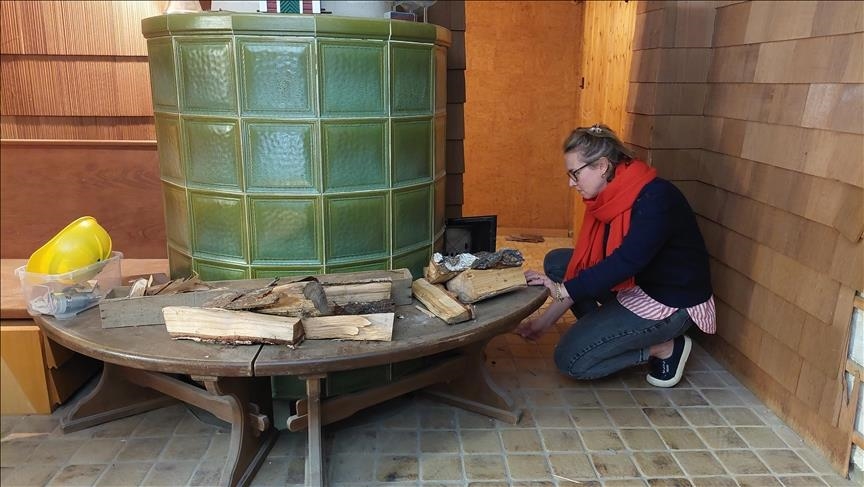
ISTANBUL
Europe is facing a deepening energy crisis, partly because of the ongoing Russia-Ukraine war, as Moscow has suspended the supplies of natural gas in response to economic sanctions by the West.
European governments are trying to diversify their supplies and introduce measures to reduce demand and save energy.
Germany's Finance Minister Lindner is promoting fracking technology in gas extraction while Poland signed an agreement with South Korea to develop a private nuclear power plant.
Meanwhile, ordinary citizens are coming up with new ways to cope with the crisis, such as Germans who are turning to wood to heat their homes.
Here are the latest developments on Europe’s energy front.
Poland
South Korea and Poland have signed an agreement to develop a private nuclear power plant in Poland, South Korea’s Industry Ministry said on Monday.
The state-run Korea Hydro & Nuclear Power, Polish energy group ZE PAK, and state-owned power company PGE signed a letter of intent in Seoul and said they will come up with a preliminary development plan for the construction by the end of this year.
The document was signed by Poland’s Deputy Prime Minister and Minister of State Assets Jacek Sasin and South Korea’s Trade, Industry and Energy Minister Lee Chang-Yang. The governments of both countries have declared their support for the investment.
“The construction of the nuclear power plant will support the country's key nuclear energy program,” said Sasin.
Germany
German Finance Minister Christian Lindner continues to promote the country's rapid entry into the fracking technology in the face of the energy crisis, according to local media.
"We have significant gas reserves in Germany that can be extracted without endangering drinking water," Lindner told Funke-Mediengruppe newspapers on Sunday, adding: "The promotion is also responsible under ecological conditions."
The minister also called for "a rapid approach to extraction," which he said would allow Germany to cover a relatively large demand from domestic gas sources in just a few years.
The politician added that it was "not responsible to abandon fracking for ideological reasons."
The FDP politician's comments drew opposition from his coalition partners SPD and the Greens. SPD energy expert Nina Scheer told business daily Handelsblatt on Monday: "Anyone who calls for national fracking today is calling for expensive bad investments with serious competition for use."
Germans turning to wood
There's a run on wood these days in Germany, with suppliers across the country reporting a surge in sales as heating costs soar due to skyrocketing gas and electricity prices.
In recent years, roughly half of Germany’s homes were heated with natural gas and another 25% used heating oil, while less than 6% used firewood.
But now suppliers of the raw material are struggling to keep up, leading to a scarcity of firewood. Earlier this summer, Germany’s Federal Firewood Association said the market was all out of wood.
Ukraine war, energy crisis spurt decline in global labor markets
The outlook for global labor markets has worsened in recent months, and with current trends, job vacancies will fall and global employment growth will decline substantially in the final quarter of this year, the International Labor Organization (ILO) said on Monday.
Rising inflation is causing real wages to fall in many countries, Gilbert Houngbo, the new head of the ILO, told journalists at a news conference.
The inflation came in addition to significant declines in income during the COVID-19 crisis, which affected low-income groups the most in many countries, he said.
According to the ILO Monitor's World of Work report, worsening labor market conditions are affecting both employment creation and the quality of jobs, stressing that "there are already data suggesting a sharp labor market slowdown."
Anadolu Agency website contains only a portion of the news stories offered to subscribers in the AA News Broadcasting System (HAS), and in summarized form. Please contact us for subscription options.







